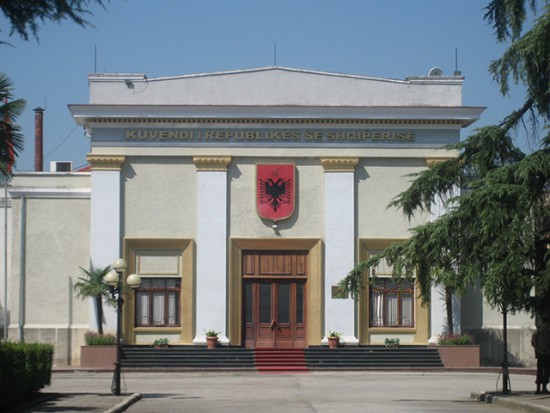Law ‘Cleansing’ Politics Raises Eyebrows in Albania
A law designed to bar criminals from holding public office has won cross-party support – but many experts doubt it will be enough.
A law designed to cleanse Albanian politics of people with criminal records has obtained a consensus among all the main political options in the country. If adopted, as seems likely, it will ban people who have been convicted of serious offences from appointment or election to state institutions.
On Thursday, Mark Frroku, the Albanian MP detained in prison on behalf of the Belgian authorities, who want him on murder charges, submitted his resignation from parliament, calling himself “a victim of the decriminalization process”. Oerd Bylykbashi, an opposition Democratic Party MP and chairman of the parliamentary commission set up to draft the law, told BIRN that the change will have a real impact on the political scene. “The law … is the best solution for our concerns about the criminalization of Albanian politics. This is the toughest law on this issue in all of Europe and provides all the mechanisms needed to secure real implementation,” he said.
If it is passed, MPs, local politicians, government officials, civil servants and members of the military and police forces will be subjected to checks on their criminal backgrounds, if any. For Bylykbashi, it is a chance for the opposition to require checks on some local government officials that they have identified as individuals with criminal pasts.
However, Afrim Krasniqi, director of the Albanian Institute for Political Studies, told BIRN that celebrations were premature. “People with criminal pasts are not by chance in Albanian politics. They are in it because of informal agreements with the leaders of the political parties – and I doubt that the latter have the political willingness to end these agreements,” he said.
Krasniqi said a major obstacle preventing change was the “dirty” money that the parties rely on to finance their activities. “Albanian parties are financed mainly by private sources which have criminal activities and corruption at their core,” he said. “After this law passes, criminal elements will simply support, promote and finance their products from outside parliament,” he warned.
Experts also suspect that the initiative will mainly punish the “small fish” and leave the big players to carry on in the same old way. Mero Baze, director of TemA media outlet, said the law was mainly an alibi for the Albanian political class, designed to excuse a problem that they have created. “The party leaders used the centralized elections system approved in 2009 to invite into parliament people with criminal pasts. Now they are using this new initiative to get rid of them, although they lack any real willingness to do so,” he said.
Baze told BIRN that the real problem in Albanian politics was the culture of impunity among politicians and officials. “We have top political representatives who have never faced justice even after being accused of serious wrongdoing. Impunity is the real struggle,” he said. Some demand more solid proof that the politicians are serious about cleaning up politics. Skender Minxhozi, editor-in-chief of Java News portal, told BIRN that a law alone could not change the whole political environment. “What needs changing is the political culture. Albania has good laws but the failure has come because the politicians are not willing to implement them. I believe they are going to do the same with this law,” he said.
Minxhozi said the law could only become effective if it worked together with reforms to the judiciary, which are still in the preparation phase. “If they [the politicians] allow the country to have independent prosecutors and judges, the law could be a success,” he opined.
30 November 2015

